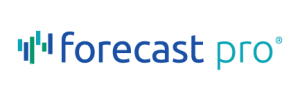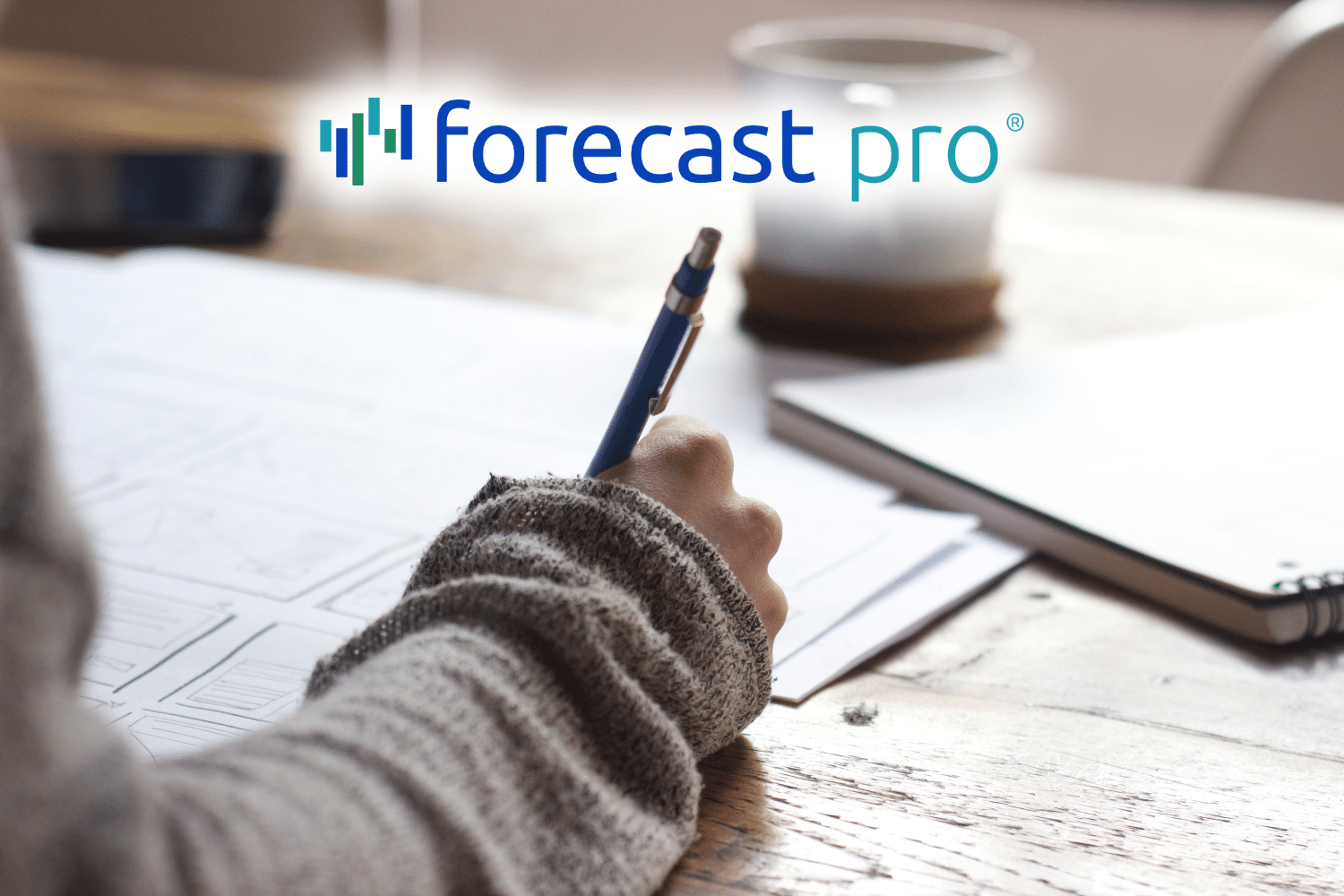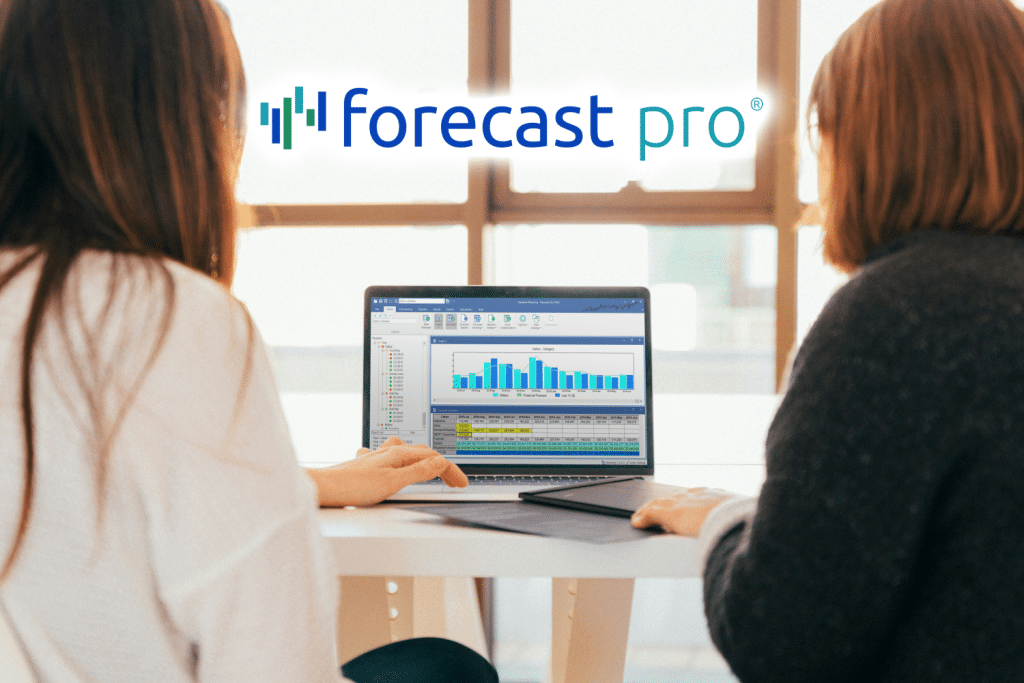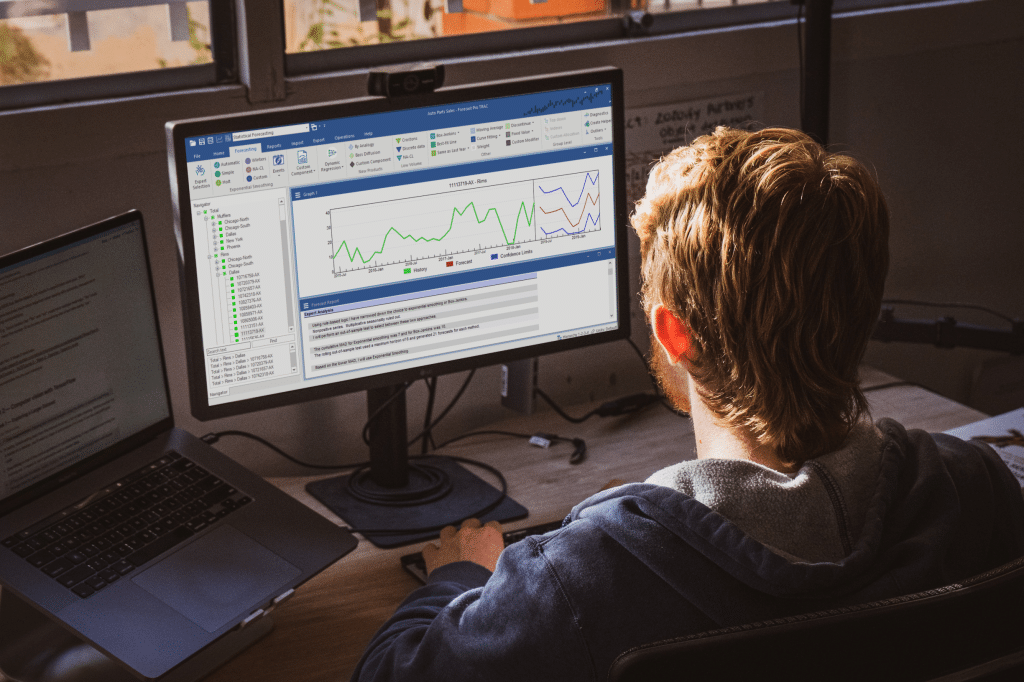Business Forecast Systems (the makers of Forecast Pro) will be running a preconference workshop at the 2023 International Symposium on Forecasting. The workshop is entitled Business Forecasting: Techniques, Application and Best Practices and will take place on Sunday, June 25th. We’ll also be exhibiting at the conference which takes place June 25-28—stop by and say hello!
Contents
Workshop Overview
This workshop surveys commonly implemented business forecasting methods, explains how they work conceptually, reveals their strengths and limitations, and offers best practices for applying them in a business environment.
Numerous real-life examples from a range of industries will be presented. The workshop will utilize the Forecast Pro software to illustrate how the techniques are applied to corporate data.
You will leave the workshop with a working knowledge of quantitative and qualitative forecasting methods, enabling you to improve your forecast process and your forecast accuracy .
Part I: Introduction to Forecasting
A broad overview of business forecasting and its various uses within the organization. Topics include approaches to forecasting, features of data, the role of judgment, and resources for forecasters.
Part II: Univariate Forecasting
Exponential Smoothing
A survey of exponential smoothing techniques with particular emphasis on the Holt-Winters family of models, Croston’s intermittent demand model and a model designed to forecast items that exhibit significant volume only at certain times of the year. Topics include the pros and cons of using these models, when they are best used, how they work, identifying model components, parameter optimization and model diagnosis.
Box-Jenkins (ARIMA) Models
An exploration into the use of ARIMA models for business forecasting. Topics include the advantages/disadvantages of using these models, how and when they should be applied, automatic identification procedures, and model diagnostics.
Part III: Multivariate Forecasting
A discussion of the benefits and requirements for using multivariate forecasting methods followed by a closer look at event-index models, machine learning approaches, and dynamic regression models.
Event-index Models
Event-index models extend the functionality of exponential smoothing models by providing adjustments for promotions, stock outs and other events that move around the calendar. This unit addresses how these models work, how and when they should be used, and how to customize their design to best suit your needs.
Forecasting with Machine Learning
An overview of the basics and benefits of forecasting with machine learning (ML). Topics include the basics of machine learning powered forecasting, when ML is likely to improve your forecasts, and the steps involved in generating ML forecasts. A particular emphasis will be placed on extreme gradient boosted trees, an ML approach that performed well in the M5 forecasting competition.
Dynamic Regression
A detailed look into the ins and outs of regression forecasting. Topics include when regression models are best applied, how to build a regression model, ordinary least squares, leading indicators, lagged variables, Cochrane-Orcutt models, hypothesis testing and the use of “dummy” variables.
Part IV: Post Workshop Video Access
In addition to the live workshop, attendees will have two weeks of access to an on-demand video library of the topics that will not be presented live. These include:
Components of Data
An in-depth look at the different components found in time series data including trends, seasonal patterns, business cycles, trading-day variations, interventions (events) and noise. Discussion includes the forms the components can take, spotting local vs. global components, interpretation of business cycle indicators and the use of decomposition routines.
Forecasting Accuracy and Evaluation
A detailed look at evaluating the accuracy of forecasting methods. Topics include the distinction between within-sample and out-of-sample errors, a survey of error measurement statistics, a summary of findings from forecasting competitions and an explanation of how to use both real-time tracking reports and simulations as predictors of model performance.
Identifying Problems in Your Forecasting Process
Approaches for focusing on critical items when forecasting large volumes of data. Topics include evaluating and forecasting SKU data, filtering and ABC (Pareto) classification, outlier detection and correction, exception reporting and measuring accuracy across multiple time series.
Multiple-Level Forecasting
This session explores hierarchical forecasting techniques. Topics include discussion of the need for forecasting at various levels, product vs. geographical hierarchies, reconciliation strategies, top-down vs. bottom-up approaches, the use of proportional allocation and adjustment for seasonality.
New Product Forecasting
This session explores various approaches for forecasting new products. Topics include the pros and cons of different methods based on a product’s classification, and a review of popular methods including item supersession, forecasting by analogy and the Bass diffusion model.
Registration
This workshop is part of the 2023 International Symposium on Forecasting. For more details on the event and how to sign up, visit the ISF website.
Hours: The Business Forecasting Workshop will take place on Sunday, June 25th from 9am to 4pm.
Cost: There is a fee of $150 for this full day workshop. When registering for the symposium, you will be given the option to sign up.
Instructors
Eric Stellwagen
Eric Stellwagen is
Sarah Darin
Sarah Darin has







